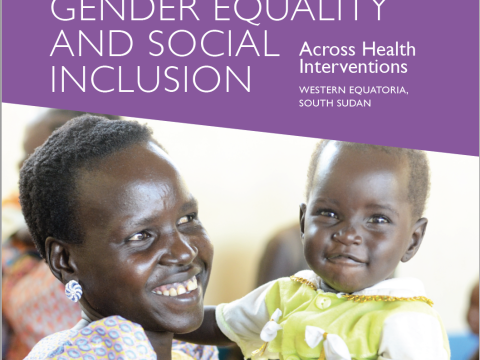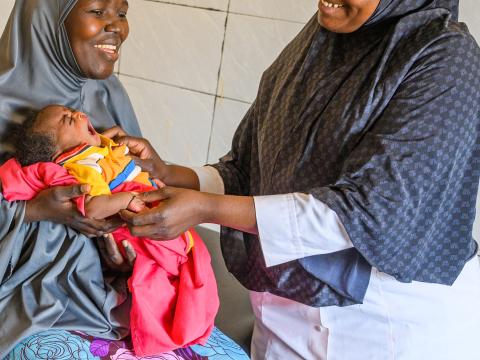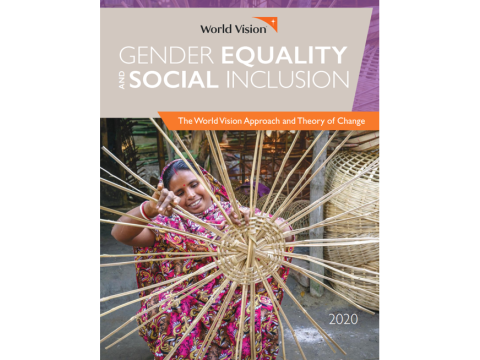
GESI and Health Integration
World Vision views gender equality and social inclusion (GESI) as crucial for sustainable development, addressing harmful and discriminating gender and social norms and power imbalances in any given context and technical programme area. The GESI approach support change across all five GESI domains — access, decision-making, participation, systems, and well-being — and involves designing programmes that work with communities to bring positive change at the individual, household, community, and societal levels.
Integrating GESI approaches in health programming will ensure vulnerable groups (such as women, children, the elderly, persons with disabilities, refugees, and others) can equally access and participate in health decision-making structures and benefit from health-related development interventions.
World Vision's integrated GESI into the public healthcare system in Western Equatoria, South Sudan, through a Health Pooled Fund-funded project. Evidence suggests that the project strengthened the health system and referral mechanisms at all levels of health care and improved the health status of women, children, and other vulnerable groups, including persons with disabilities and survivors of gender-based violence.
The Prioritizing GESI Across Health Interventions Project is a joint project of World Vision, South Sudan Ministry of Health, and Health Pooled Fund, a consolidated fund from the British Government’s Department for International Development, the Government of Canada, the Swedish International Development Cooperation Agency, and the United States Agency for International Development. The documentation of GESI Promising Practices is part of GESI Transform Project funded by World Vision U.S.
Learn more about World Vision's work on GESI here and here and World Vision's work on Health and Nutrition here.


